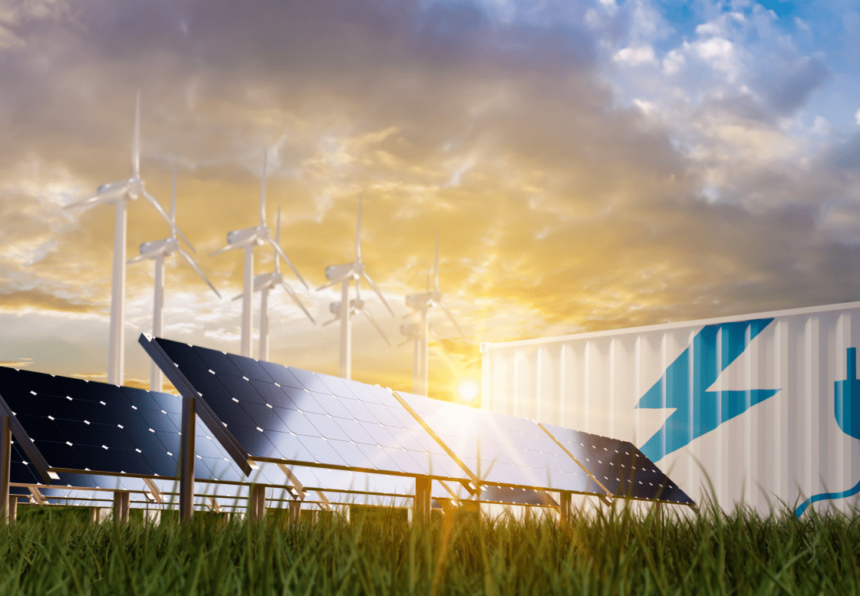Businesses are looking for more ways to operate efficiently, reduce business energy costs, and minimise their environmental impact. Smart energy systems are playing a pivotal role in achieving these goals. Companies such as Utility Bidder are helping businesses transition to smarter energy solutions, which are essential for both cost savings and sustainability.
These systems provide real-time data and advanced analytics, allowing businesses to optimise their energy usage and reduce waste. But how exactly are smart energy systems transforming business efficiency? Let’s explore the impact of this technology and how it can benefit your business.
How Smart Energy Systems Revolutionise Business Efficiency
Smart energy systems use advanced technology to monitor and manage real-time consumption. They are transforming how businesses handle energy usage, helping companies become more energy efficient while reducing operational costs. These systems typically integrate sensors, data analytics, and automation to streamline energy usage across various business operations.
In particular, smart energy systems enable businesses to track consumption patterns, identify inefficiencies, and take steps to reduce energy usage. The insights gained from these systems empower business owners to make informed decisions about energy efficiency, which can lead to significant cost savings. These technologies are precious for businesses with high energy demands, such as manufacturing plants, data centres, and large office buildings.
Energy Consumption Monitoring and Control
One of the most significant advantages of smart energy systems is their ability to provide real-time data on energy usage. Businesses can precisely monitor electricity, heating, cooling, and even water consumption. Smart meters and sensors collect data on how energy is used in various parts of the facility, which helps businesses identify areas where they can reduce consumption.
Reducing Energy Costs Through Data-Driven Insights
Data collected from smart energy systems can also highlight peak usage times when costs are typically higher. Companies can then take action to adjust their operations during off-peak times, reducing energy bills. For example, companies can optimise air conditioning systems or switch to energy-efficient equipment during high-usage periods. This not only saves money but also helps in improving home energy efficiency over time.
Automated Energy-Efficient Equipment
Smart energy systems can be linked with automated equipment to optimise energy use. Many businesses are already integrating energy-efficient devices such as smart thermostats and lighting systems that adjust based on occupancy. These systems can automatically reduce heating or cooling in unused areas, contributing to energy saving.
Increased Use of Automation in Air Conditioning
Air conditioning systems consume a large portion of a business’s energy, especially in large commercial buildings. Smart energy systems can regulate air conditioning to run only when needed, reducing consumption. Studies show that implementing smart systems in air conditioning can lower energy costs by as much as 20%, creating immediate savings for businesses.
Energy Efficiency Advice for Businesses
Businesses looking to improve energy efficiency can benefit from tailored efficiency advice provided through smart energy platforms. These platforms can suggest practical changes to reduce usage and optimise bills. Many also offer projections on long-term savings, giving business owners a clear idea of the return on investment for energy-efficient upgrades.
Greenhouse Gas Emissions Reduction
Reducing energy consumption also results in lower carbon emissions. This is important for businesses aiming to align with sustainability goals or meet regulatory requirements for reducing greenhouse gas emissions. Smart energy systems can play a vital role in this, offering businesses a way to track and reduce their environmental impact.
Smart Energy Systems and Significant Cost Savings
The financial benefits of adopting smart energy systems are clear. Businesses that switch to these systems can save energy bills significantly through reduced energy consumption and improved operational efficiency.
- Energy-Efficient Equipment: Investing in energy-efficient equipment such as smart lighting or automated heating systems can lead to long-term savings.
- Optimised Usage: Smart systems allow businesses to avoid unnecessary usage during off-hours or in unused spaces.
Improving Business Energy Efficiency through Technology
Technological advances in smart energy systems have made it easier for businesses to improve their energy efficiency. From automation to predictive maintenance, these systems can keep costs low while ensuring businesses run smoothly.
Predictive Maintenance and Reduced Downtime
One of the ways smart energy systems improve business efficiency is through predictive maintenance. These systems monitor equipment performance and can predict when maintenance is needed, reducing the risk of breakdowns and unexpected downtime. This, in turn, leads to lower repair costs and ensures that equipment operates efficiently for longer periods.
How to Save Money with Smart Energy Systems
Saving money on costs is one of the biggest motivations for businesses to adopt smart energy systems. Companies implementing these systems typically see reductions in their overall energy bills within the first year.
Some companies have reported saving up to 30% on energy costs through smart technology. These savings can be reinvested in other parts of the business, further improving efficiency and profitability. Check out this Hamro Solar LLC to save more bucks!
Final Words
Smart energy systems are revolutionising how businesses manage energy consumption, offering financial savings and environmental benefits. Businesses can significantly reduce energy costs and improve efficiency through real-time monitoring, automation, and energy-efficient tools.
FAQs
What are the typical savings with smart energy systems?
Businesses can save anywhere from 15% to 30% on their energy bills depending on the size of their operations and how effectively they utilise the systems.
How do smart energy systems help reduce carbon emissions?
These systems optimise energy use, lowering energy consumption and reducing the carbon footprint, directly resulting in fewer greenhouse gas emissions.
Which industries benefit the most from smart energy systems?
Manufacturing, logistics, and data centres are among the industries with the greatest energy savings due to high energy demands.






